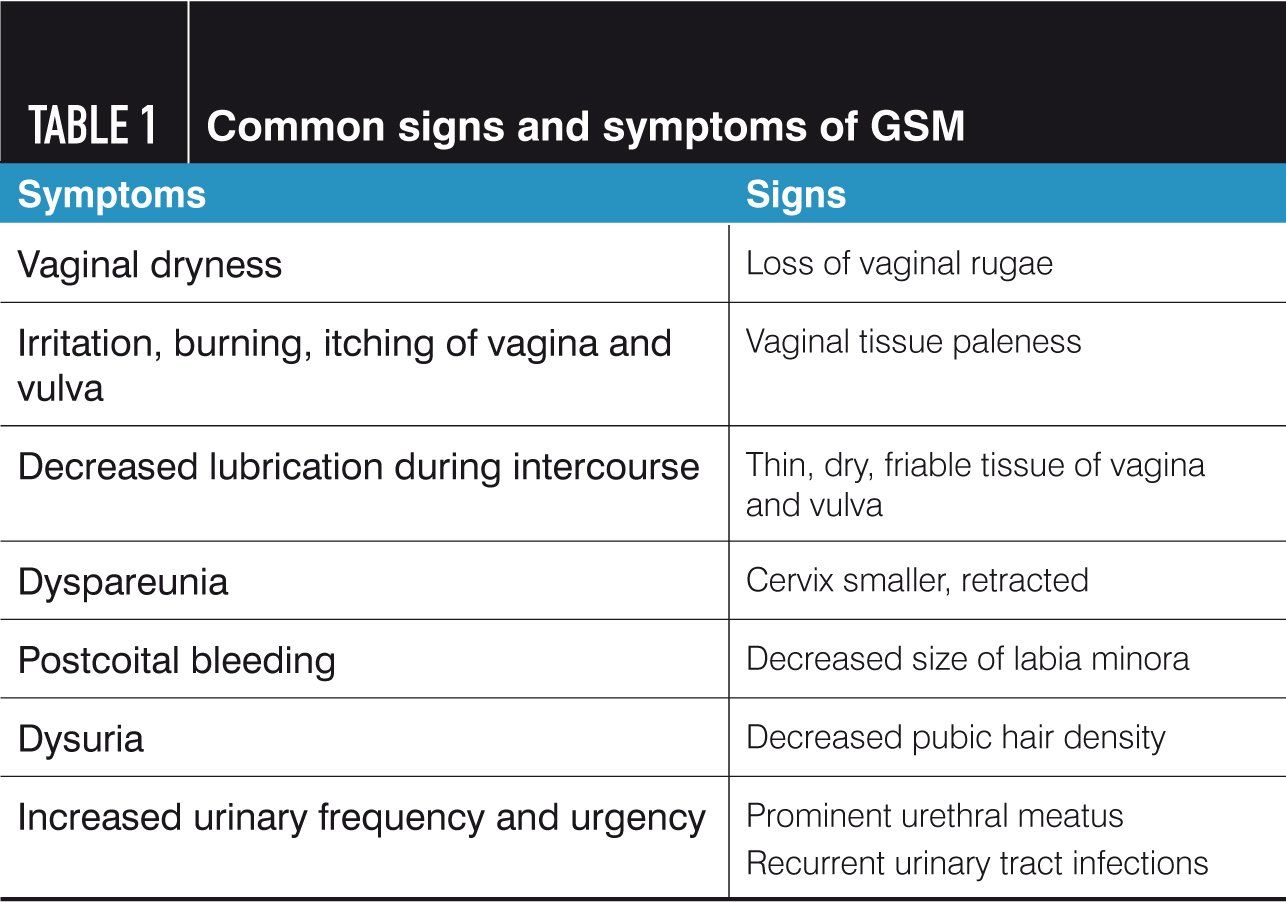Common signs and symptoms of GSM
GSM can be clinically detected in up to 90% of postmenopausal women undergoing evaluation but only one-third report vulvovaginal symptoms when surveyed.

GSM can be clinically detected in up to 90% of postmenopausal women undergoing evaluation. However, only about one-third of menopausal women report vulvovaginal symptoms when surveyed.1 According to the 2010 United States census, there are approximately 50 million women over age 51, the average age of menopause.2,3 That means approximately 17 million women experience GSM symptoms, a number that is likely increasing due to population demographics. Studies have shown that many of these women rate their symptoms as either moderate or severe. Affected women perceive declines in quality of life similar to those of patients with chronic conditions such as arthritis, chronic obstructive pulmonary disease (COPD) and irritable bowel syndrome.4 GMS symptoms also negatively impact sexual satisfaction in over half of patients and strain personal relationships.5
References:
- Palacios S, Nappi RE, Bruyniks N, Particco M, Panay N, Investigators ES. The European Vulvovaginal Epidemiological Survey (EVES): prevalence, symptoms and impact of vulvovaginal atrophy of menopause. Climacteric. 2018;21(3):286-291.
- Howden LM, Julia. Age and Sex Composition: 2010. In. Commerce USDo, trans. United States Census Bureau: U.S. Census Bureau; 2010.
- Avis NE, McKinlay SM. The Massachusetts Women’s Health Study: an epidemiologic investigation of the menopause. J Am Med Womens Assoc (1972). 1995;50(2):45-49, 63.
- DiBonaventura M, Luo X, Moffatt M, Bushmakin AG, Kumar M, Bobula J. The Association Between Vulvovaginal Atrophy Symptoms and Quality of Life Among Postmenopausal Women in the United States and Western Europe. J Womens Health(Larchmt). 2015;24(9):713-722.
- Kingsberg SA, Wysocki S, Magnus L, Krychman ML. Vulvar and vaginal atrophy in postmenopausal women: findings from the REVIVE (REal Women’s VIews of Treatment Options for Menopausal Vaginal ChangEs) survey. J Sex Med. 2013;10(7):1790-1799.
OASIS-1 trial reports reduced VMS frequency and severity from elinzanetant
May 17th 2024A recent study showcased at the 2024 ACOG Annual Clinical & Scientific Meeting unveils elinzanetant's efficacy in alleviating vasomotor symptoms, sleep disturbances, and enhancing menopause-related quality of life in postmenopausal women.
Read More
Study links premature menopause to musculoskeletal pain and sarcopenia risks
May 1st 2024A recent study revealed an association between premature menopause and increased risks of musculoskeletal pain and sarcopenia, emphasizing the potential benefits of hormone therapy in mitigating long-term effects.
Read More
